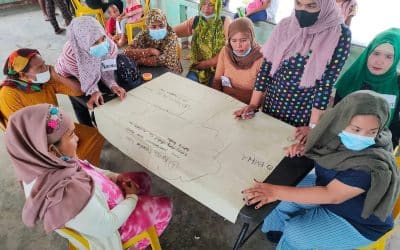The Cities of Albukamal, Syria and Qaim, Iraq: Much More Than A Border
Program Year: 2019
The Syrian city of Albukamal and the Iraqi city of Qaim along the Syrian-Iraqi border are separated by only a few hundred meters and have historically been linked by tribal and family ties. For decades the cities, like the border dividing them, have had strategic importance for Syria and Iraq, even as their role appears to have expanded today to have implications for the rivalry between Iran and Israel.
The Syrian-Iraqi border has gone through several phases in which it has played essential roles in the politics of the region. During the 1980s it served as a front line in the rivalry between the Syrian and Iraqi Ba‘th parties. Albukamal and Qaim were very close to one another physically and culturally, but also separated by politics. Shortly after Saddam Hussein seized power in Iraq in 1979, Iraqi-Syrian relations deteriorated and the contending Baathist regimes closed the border. As a result, smuggling, particularly of cigarettes and livestock, became a central feature of the local economy and society, drawing on old relationships linking the two sides. This was facilitated by the large number of uninhabited areas and natural tunnels present along the border.
The Latest Across Asia
News
April 25, 2024
Program Snapshot
April 18, 2024
News
April 17, 2024

2024 Lotus Leadership Awards
Thursday, April 25, 2024, New York City
The Lotus Leadership Awards recognize contributions towards gender equality in Asia and the Pacific







